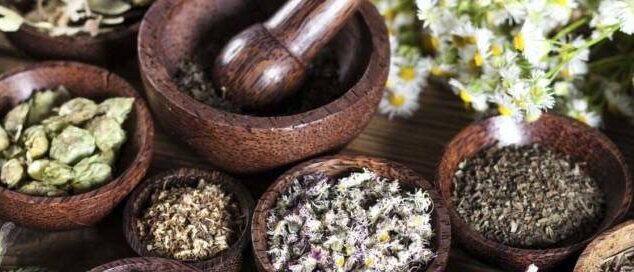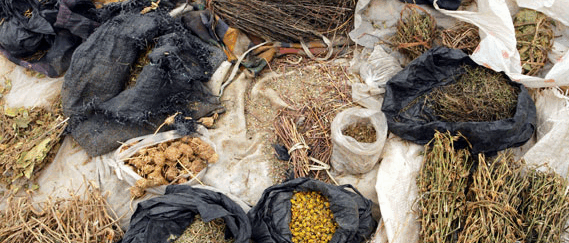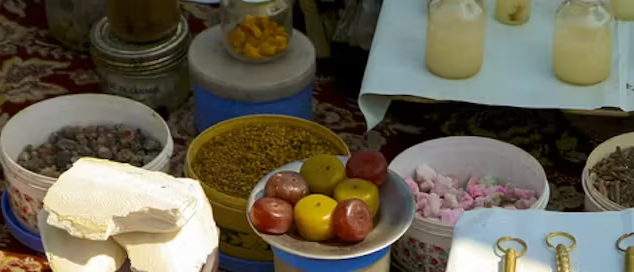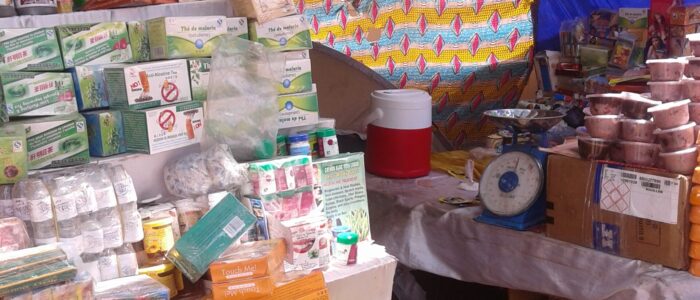This Website is Under Construction!
Please come visit us again. Almost every day we are updating and expanding.
The value of African Herbalism In Africa, about 80% of the population rely on traditional medicine for their basic healthcare needs (WHO). Medicines from natural products are affordable, accessible and are generally safe.
Emergence of drug resistant strains of infectious diseases and dose limiting toxic effects are a growing concern world wide. This calls for the search for new medicines, especially antimicrobials, from various sources.
Some herbal medicines have been translated into modern remedies, such as the anti-malarial group of Artemisinin isolated from Artemisia annua, a herb that was known in Chinese medicine to treat fever.
Read more on the Value of Herbal Medicine
Traditional African medicine is a holistic healing system that uses a combination of spiritual practices, herbal remedies and other methods to address physical and mental health. It is deeply rooted in cultural and spiritual beliefs, often incorporating divination and ritualistic practices alongside the use of plant and animal-derived remedies.
Traditional African medicine, with its belief that illness is not derived from chance occurrences, but through spiritual or social imbalance, differs greatly from modern scientific medicine, which is technically and analytically based.
Read more on Traditional African Medicine
The History of Herbalism People ave been using medicinal plants since the beginning of mankind. Archaeological remains from early civilisations show that plants were used in burials and other rituals.
The knowledge was passed down from generation to generation and gradually information was methodically collected from native peoples and compiled in herbal pharmarcopoeias. One of the first written records of herbal medicines was Chinese, in around 2800BC in the ‘Pen Ts’ao’ by Shen Nung.
Throughout the Middle Ages botanicals were the only medicines available and most households would have small herb gardens. By the 17t century knowledge of herbal medicine ws widely spread throughout Europe and in 1649 Nicholas Culper wrote his famous pharmacopoeia which was one of the first medical manuals intended for the use of the lay person, and is still widely quoted from today.
In modern healthcare pharmaceutical drugs, often derived from medicinal plants, have largely replaced herbal medicines.
Holistic Medicine Holistic medicine is a healthcare approach that views the individual as a whole, encompassing their physical, mental, emotional, and spiritual aspects. It emphasizes the interconnectedness of these dimensions and seeks to address the root causes of health issues rather than just treating symptoms. While not a formal branch of scientific medicine, holistic approaches often incorporate evidence-based practices and may include complementary and alternative therapies.
The Healing Arts encompass creative therapies and approaches used to pomote well-being and address health conditions. These methods utilize creativity, such as art, music, or dance therapy, to positively impact mental and physical health. The field of healing arts is increasingly recognized for its effectiveness in managing stress, anxiety, and even some physical ailments.
The Healing Arts Include: Art Therapy: Utilizes art-making as a therapeutic tool to express emotions and explore personal experience, Music Therapy: Employs music to facilitate healing, relaxation, and emotional expression & Dance/Movement Therapy: Uses movement to address physical and emotional issues.
More on The Art of Healing
Prophetic Medicine, a part of Islamic traditions, focuses on using natural remedies and dietary recommendations based on the teachings of the Profet Muhammed. It encompasses a holistic approach to health, including preventative measures like dietary habits, hygienic practices, and stress management.
Key aspects of Prophetic medicine:
- Natural Remedies:It emphasizes the use of natural herbs, foods, and other substances for treatment and prevention. Examples include honey, olive oil, nigella sativa (black seed), and dates, which have been cited in the Quran and the sayings of the Prophet Muhammad.
- Preventative Measures:Prophetic medicine stresses the importance of adopting a healthy lifestyle to prevent illness, including proper nutrition, hygiene, and avoiding harmful substances.
- Holistic Approach:It considers the physical, mental, and spiritual aspects of health, incorporating dietary guidelines, spiritual practices, and stress management techniques.
- Dietary Guidelines:Prophetic medicine recommends specific dietary habits, such as consuming a balanced diet, avoiding excessive eating, and using certain foods for their medicinal properties.
- Hygiene and Cleanliness:It emphasizes the importance of personal hygiene and environmental cleanliness for maintaining health and preventing disease.
- Emotional and Spiritual Wellbeing: Prophetic medicine recognizes the link between mental and spiritual well-being and physical health, encouraging practices like prayer, supplication, and mindful living.
Click for more on Prophetic Medicine
Many herbs are applied topically to the skin in a variety of forms. Essential oil extracts can be applied to the skin, usually diluted in a carrier oil. Salves, oils, balms, creams, and lotions are other forms of topical delivery mechanisms. Inhalation, as in aromatherapy, can be used as a treatment
Keep reading if you like to learn more about Herbal Preparations



